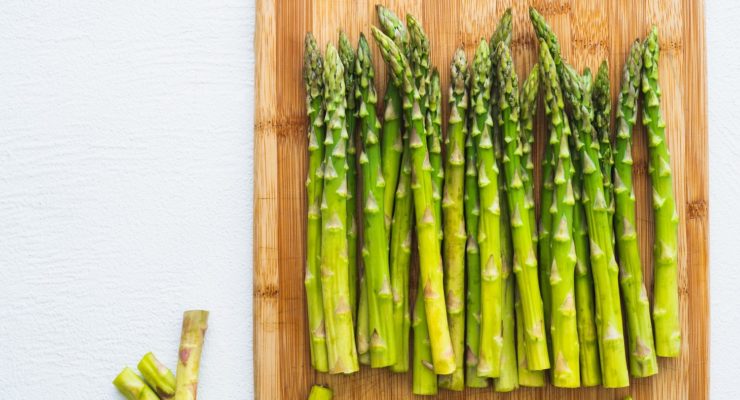Weight Loss and Age: 10 Tips for Losing Weight in Your 20s and 30s
Article posted in: Fitness Diet & Nutrition Lifestyle
Do you know what your future self would tell you about your 20s and 30s? You’ll be living with the consequences of your daily choices for the rest of your life. When it comes to your health, that can be good news or bad. If you eat only 370 calories more than you need each day, your body mass index (BMI) could climb from a healthy 23 to a nearly obese 29 over the next 20 years, says a study, published in the Journal of the American Medical Association.
Extra pounds that you put on when you are young become ever more difficult to shed as you get older. So, the best time to begin eating wisely is right now—no matter what your age is. Our health and nutrition experts have gathered these 10 helpful hints that will get you started on a lifetime of feeling and looking your best.
Here are 10 tips for losing weight in your 20s and 30s:
1. Get to bed.


Whether you’re up late partying or you’re awake during the night with young children, lack of sleep can slow your efforts at weight loss. When you are sleep deprived, your metabolism is disrupted in a variety of ways, including increased hunger and appetite, diminished response to your body’s natural supply of insulin and higher concentrations of the stress hormone cortisol. According to Current Opinion in Clinical Nutrition & Metabolic Care, many studies have found that chronic lack of sleep significantly increases your risk of obesity.
Try for at least seven (ideally eight) hours of sleep each night. Also, take a break from scrolling through your social media feed before you turn the lights out—the blue light emitted by tablets and phones can suppress your body’s production of the sleep hormone melatonin, according to research, published in the Journal of Applied Physiology.
2. Limit your drinks.


Wine, beer and hard liquor come with empty calories—about 100 to 125 per serving. And that quickly adds up when you’re having more than one. What’s more, drinking alcohol can stimulate your appetite and lead to unhealthy food choices.
You can still enjoy a weekly drink or two and stay on track with your weight loss goals. However, you want to stick to the lowest calorie options: light beer, dry wine and cocktails made with club soda (or other sugar-free mixers). Before you have the drink, pick a snack to go with it that’s both satisfying and nutritious, such as our simple recipes for Nacho Style Roasted Chickpeas or Cauliflower Buffalo Bites. Having a healthy option ready and on hand will keep you from eating off plan.
Learn more about alcohol on Nutrisystem, then take a look at these 10 low calorie beers that actually taste good! >
3. Pass on the drive-thru.


Fast food can be tempting, especially when you’re living life on the go. But the standard fare loads you up with excess fats, unhealthy carbohydrates and several days’ worth of calories. If you need a handy meal to take with you, check out the Nutrisystem menu. From our Turkey Sausage and Egg Muffin and Cinnamon Roll for breakfast to our healthy Hamburger and BBQ Seasoned Chicken Melt for lunch, we have plenty of choices that are ready in minutes and faster than the drive-thru.
Dining out with friends? Click the link below for some helpful healthy tips!:
4. Keep it real.


The best foods for you are simple and made with ingredients you recognize. A 2018 study of nearly 16,000 adults found a strong correlation between eating “ultra-processed” food and excess weight gain, according to the British Journal of Nutrition. The Nutrisystem plan is full of your favorite meals, all created by chefs using the kind of ingredients you’d use at home. Plus, our foods are free of artificial colors, sweeteners and flavors.
5. Fill your freezer.


When your life is busy, you may not get to the supermarket every week. An empty refrigerator can lead you away from healthy eating. If you don’t have appealing food on hand when hunger strikes, you’re more likely to call for take-out, delivery or another quick, high-calorie solution. Stock up your freezer with frozen vegetables and fruit, whole grains, unseasoned seafood and your favorite items from the Nutrisystem menu so you can always whip up a healthy meal—even if you haven’t been shopping in weeks.
6. Be smart after dark.


Eating heavy meals close to bedtime can lead to weight gain, says a report, published in the journal Nutrients. The researchers found that when subjects ate identical meals in the morning, afternoon or night, more of the calories from the last meal were stored as fat than the two earlier meals. They did note that there was no difference when the subjects ate a small snack in the evening versus during the daytime. If you need to eat at night, keep it light with some air-popped popcorn or a tasty Nutrisystem snack.
7. Steer clear of soda.


You probably already know that ordinary soda is loaded with sugar (about 10 teaspoons in a 12-ounce can) and calories (about 150 per can), so even one can disrupt your healthy diet. Diet sodas have far less sugar and few calories, but be aware that “artificial sweeteners, precisely because they are sweet, encourage sugar craving and sugar dependence,” according to a report, published in the Yale Journal of Biology and Medicine. Instead, drink sodium-free seltzer with fresh lemon or lime juice or unsweetened iced tea.
8. Maintain your muscles.


Your body’s muscle mass peaks in your 20s, then gradual loss begins as you approach your 30s and continues thereafter. Muscle not only provides you with strength but it also burns more calories—even when you’re resting—than fat does. Regular strength-building exercises can help maintain your muscle mass longer and keep your metabolism active all day. Bonus: toned muscles help you look as good as you feel!
Boost your weight loss and improve your sleep with this before-bed workout routine! >
9. Start today.


Fewer people in their 20s and 30s suffer from cardiovascular disease, high blood pressure or type 2 diabetes, so there isn’t the same pressure to eat a healthy diet as older people feel. But the eating patterns and other health habits you develop in your 20s have a significant impact on your risk of these diseases in your 40s and older, according to a study, published in the Journal of the American Heart Association. People who choose a healthy diet when they’re young tend to keep it as they age; likewise, unhealthy habits persist as we age, too. Start eating well today and you’ll be reaping the rewards for years to come.
10. Commit long-term.


Reaching and staying at your ideal weight is not a sprint that’s over when you cross a finish line. It’s a lifelong commitment to eating healthy and staying active. With Nutrisystem, you build healthy habits like choosing the most nourishing foods, learning how to cook healthy meals and practicing regular exercise. This powerful knowledge will last well beyond your 20s and 30s.












